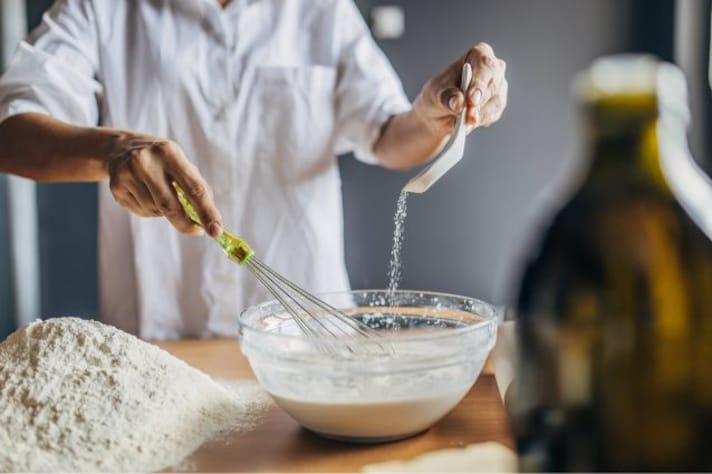Salt’s Essential Role When Baking
Salt in baking enhances flavor, balances sweetness, strengthens gluten for better texture, and controls yeast fermentation. Different salts like table, sea, and kosher suit various sweets, from cakes to cookies, improving taste and moisture retention.

At first glance, it might seem counterintuitive to add salt to sweet recipes. This humble ingredient, known for enhancing the savory flavors of dishes worldwide, might appear out of place amidst the sugars, vanillas, and flours that dominate the world of baking. However, omitting salt from your baked goods is a mistake you're likely to notice immediately, as it plays a pivotal role in elevating the overall taste and quality of desserts. Far from being just a savory seasoning, salt is a cornerstone of sweet baking, where its absence is keenly felt, leading to flavors that can fall flat and textures that miss the mark.
Why Salt is Indispensable in Baking
Salt's significance in baking can be distilled into several key reasons that go beyond mere flavor enhancement. Salt is a natural flavor enhancer, but in the context of baking, it does more than just make things "salty." It sharpens and deepens other flavors, allowing the sweetness of sugar, the richness of butter, and the subtleties of spices and extracts to shine through more vividly. Salt, moreover, plays a crucial role in the chemistry of baking. It strengthens gluten in dough, leading to better texture in breads and cakes. It also controls the rate of yeast fermentation, ensuring that breads rise adequately without overproofing. Salt helps regulate moisture in baked goods. By attracting water, it can help maintain a dessert's moisture over time, prolonging freshness and preventing staleness.

Characteristics of Salt in Baking
In baking, not all salt is created equal. The size of the salt grains can affect how it disperses throughout the dough or batter, which in turn influences the final product's flavor and texture. Fine salt dissolves more easily, ensuring a uniform taste throughout a cake or batch of cookies, while larger grains might offer occasional bursts of saltiness that can contrast delightfully with sweetness in certain recipes.
Types of Salt for Different Sweets
When it comes to choosing the right type of salt for baking, understanding the impact of various salts can help in selecting the best one for each type of dessert:
- Table Salt: Due to its fine texture, table salt is preferred for most standard baking recipes where a uniform salt distribution is desired. It's ideal for cakes, cookies, and pastries where a subtle enhancement of flavors is needed.
- Sea Salt: The larger crystals and the potential for slight mineral flavors make sea salt a good choice for finishing touches on baked goods, like sea salt caramel or chocolate chip cookies where you want a hint of crunch and a burst of flavor.
- Kosher Salt: With its coarser grains, kosher salt is great for recipes that benefit from a slower dissolution of salt, such as bread doughs. It's also useful for topping baked goods like pretzels and bagels.
- Specialty Salts (such as Himalayan Pink or Flaked Salt): These are often used as finishing salts for their aesthetic and subtle flavor differences, adding a touch of elegance to high-end desserts or special occasion baking.
;Resize,width=767;)



